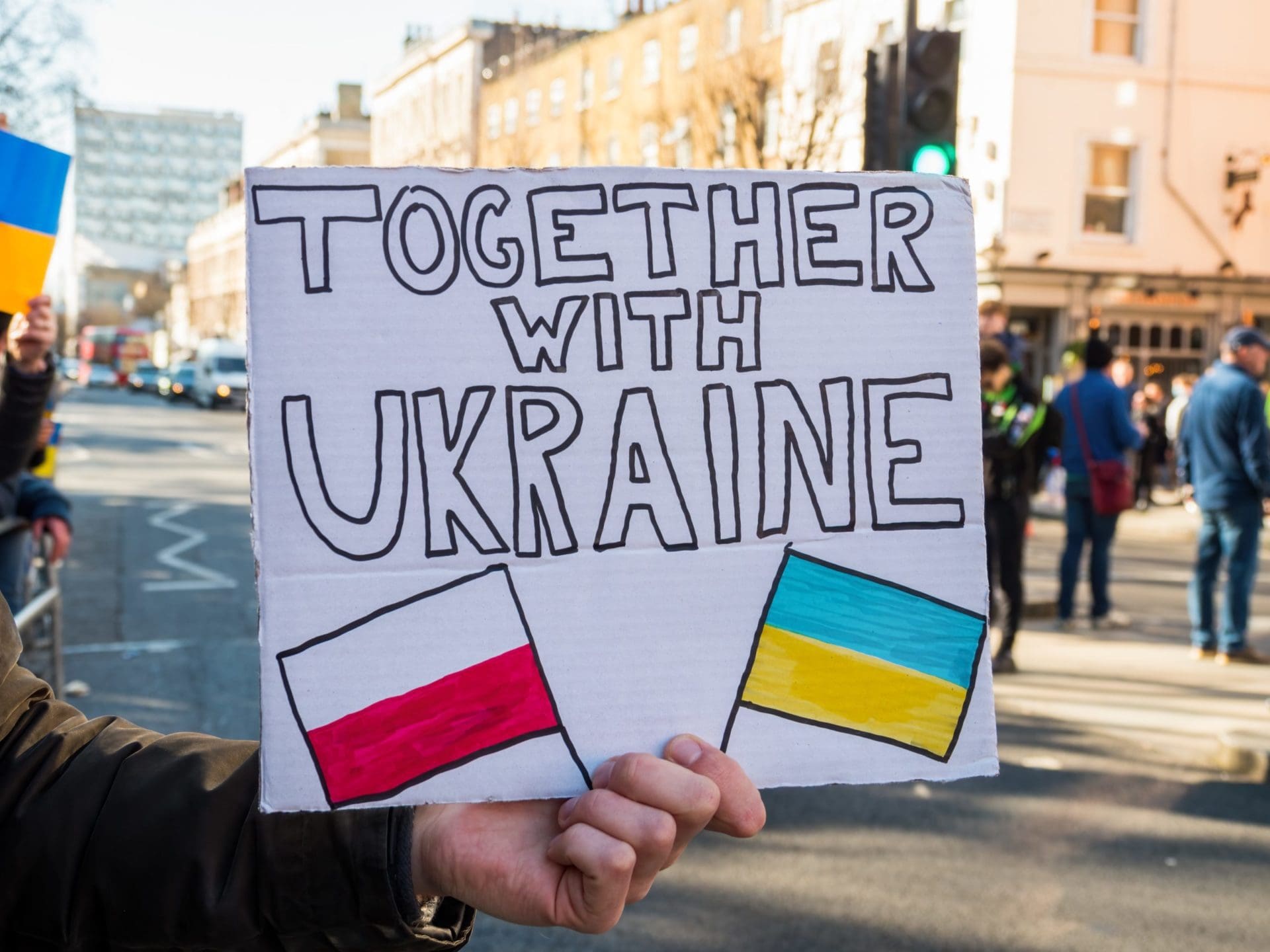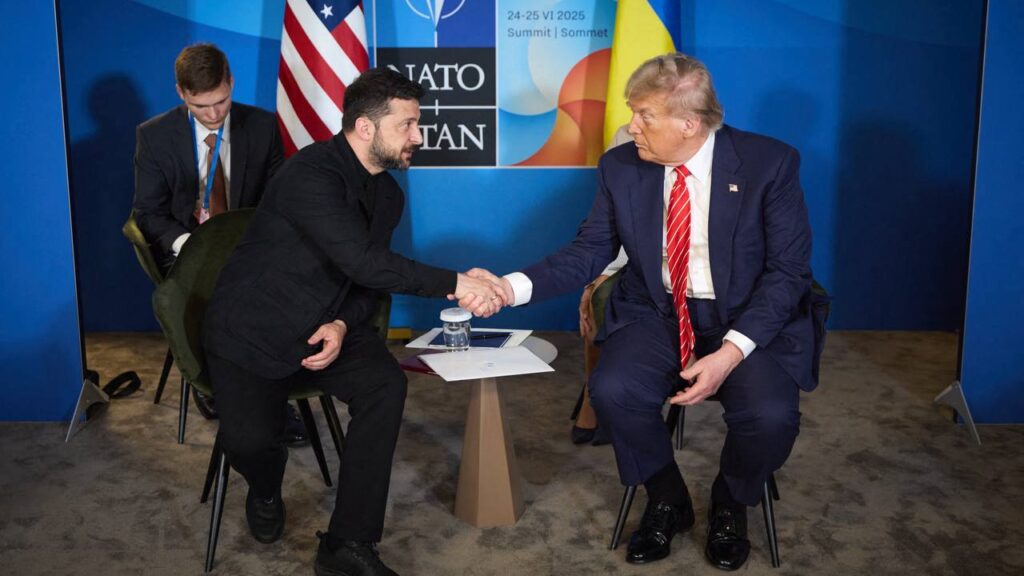The foreign policy of Hungary’s parliamentary majority is grounded in a foundation of national solidarity, good neighbourly relations, Hungarian–Polish friendship, and our Euro-Atlantic alliance. Because in respect of the war in Ukraine we remain consistent in advocating our interests as dictated by the position of our country, from time to time we inevitably find ourselves in dispute not only with Kyiv but with Warsaw, and even Washington. That said, we cannot and will not embrace any narrative that seeks to antagonize our relations with Poland or Ukraine, or to pit Hungarian public opinion against NATO.
I find it important to set this straight in light of the heated emotions raging around the world and in Hungary as well in the current tense situation. Given that citizens in Hungary, contrary to certain rumours, enjoy virtually unlimited freedom of the press, all this tension is being manifested and reported on in the media without any external control—not just in the left-liberal press, but equally, perhaps even more intensely, in media outlets leaning to the right. Yet editorials, whose impassioned tone is understandable but not always wise, must not be confused with the deliberate and rational patriotism of the policies favoured by the elected parliamentary majority and the incoming new government that has recently been appointed.
A case in point is an editorial carried by a prestigious conservative weekly which, incited by the tactical verbal skirmishes between Hungary and Poland, called the Poles ‘the grave-diggers of civilization’ bent on provoking a war, blind to the costs of ‘reckless provocation’ they have paid in the past. This rhetoric almost sounds like as if the author held Poland responsible for the outbreak of the Second World War. This is rather odd from an author and journal professing conservative views, unless they wish to identify with the arguments championed by Hitler and Stalin at the time and now being warmed up by President Putin.
Friendship in foreign policy means that the two countries act in unison wherever they can, and where they cannot, they try to do the least possible harm to the other
The friendship between Poland and Hungary does not mean that Warsaw can dictate what Hungary can and should do. What it does mean is that we listen to one another’s arguments and eschew doing wrong or even thinking ill by one another. In many ways, our countries are in a different position and will therefore necessarily behave differently in certain situations. Friendship in foreign policy means that the two countries act in unison wherever they can, and where they cannot, they try to do the least possible harm to the other. As far as we are concerned in Hungary, this is why we have stayed, and will continue to stay, away from censoring Polish foreign policy, and refuse to take sides with the anti-Polish propaganda coming from third countries.
In the historic perspective of Hungarian culture, friendship with Poland has always been an integral part of Hungarian patriotism, and anti-Polish sentiments never flared up except on account of the Hungarian acolytes of Nazism and Bolshevism. (The last mud-slinging press campaign against Polish–Hungarian friendship was orchestrated by the latter camp in the 1980s). No political actor in Hungary today can therefore ignore the consequences of making statements this way or that, because by doing so one inevitably aligns with one of two traditions of viewing Hungarian–Polish relations. By virtue of regarding our friendship with Poland as part of Hungary’s national identity, and our parliamentary majority steeped in the best traditions of Hungarian patriotism, we will always stand by that friendship, even if certain prominent Polish figures—likewise carried away by the heated emotions in the current situation—make a point in turning their backs on this tradition from time to time.
In connection with Ukrainians and the war, emotions have given rise to a particularly large number of absurd allegations, and so has perhaps the tide of misinformation coming from Russia. One harmful stereotype, gaining ground rapidly in Hungarian public discourse, holds that Ukraine’s struggle for full national sovereignty has somehow been sparked by subversive American interests. In reality, a modicum of orientation in classic works of literature or cinema is enough to make one feel flabbergasted by such claims. How could a nation with a record of bloody conflicts with Poland going back hundreds of years conceivably be thought of as the brainchild of America? Indeed, it is this troubled past that the Poles are now trying to transform into reconciliation, even an alliance on a historic scale—an effort for which we Hungarians wish the best of luck to them.
A similar historic inanity is the attempt to find an analogy between the ‘liberators’ who perpetrated war crimes in Hungary in the Second World War with the national struggle of Ukraine, citing the sheer fact that this branch of the Red Army was called the Second Ukrainian Front. In reality, this division of the Red Army wreaked the cruellest havoc on the Ukrainian nationalists, virtually aiming for their wholesale extermination.
One thing Hungary must consider is that Ukraine is by far the largest of its neighbours. This makes it vital for us to view Ukraine from a perspective informed by the deepest possible knowledge about this nation, rather than on the basis of clichés pushed by the Russian propaganda machine. I can only encourage everyone in Hungary not only to support the refugees with food and shelter, but to try and get to know their culture, their daily lives, the ways in which they think about their nation and the world. It will take nothing less for us to take a proactive first step toward Ukraine with a view to establishing good neighbour relations. The war will end one day, and when it does, such good relations will inevitably depend on the restoration of the rights of Hungarian minorities in Transcarpathian Ukraine.
The point is that Hungary is not a party to this war, nor does it wish to be. We will not send troops, supply arms, or allow lethal weapons to pass through our territory
It is just as important to make clear what we mean and what we do not mean when we say that ‘this is not our war’. The point is that Hungary is not a party to this war, nor does it wish to be. We will not send troops, supply arms, or allow lethal weapons to pass through our territory. At the same time, we are far from saying that the Russian campaign to conquer and dismember Ukraine is not against the vital interests of Hungary. Russia is seeking to prevent Ukraine from joining the same western world to which we belong. Moreover, the 150,000 ethnic Hungarians living in Ukraine make it a vital interest of national policy for us to aid Ukraine’s plans to achieve this status, no matter how ambitious those plans may seem. This is why we have been among the first to staunchly support Ukraine’s process of accession to the EU at the earliest opportunity.
On the eve of the Ukrainian war, President Putin called the collapse of the Soviet Union the greatest tragedy of universal history. It must be recognized, in the context of the war, that this assertion was more than just a single politician’s statement, fueled by his desire for the laurels of a world historian. Instead, it amounted to a superpower announcing its claim as a conqueror to lands which happen to include the Carpathian regions of Ukraine bordering Hungary. On our part, we strive not to escalate the conflict with Russia for several reasons, including those of energy and security policy, as well as from a tradition of mutual respect. What is clearly not in our interest is to have Hungarians in Ukraine all of a sudden under Russian jurisdiction or, for that matter, for us in Hungary to find ourselves right on the frontier of Russian military control (or even on the ‘privileged’ fringes, so to speak, of Russia’s sphere of power). Let me make one thing absolutely clear: the reconstitution of the former Soviet empire, which is the stated objective of this war, is entirely unacceptable to Hungary.
This, then, is ‘not our war’, but like it or not, it is a war in part against us, and therefore we cannot and will not remain neutral in it. In this sense, we owe a debt of gratitude to the Ukrainian troops fighting tooth and nail for the sovereignty of their country, defending us as well in the process. Some of the soldiers on the frontlines are ethnic Hungarians, although in this regard have been reassured by President Zelensky’s announcement suspending the mandatory draft. Another line of Ukrainian defence for us is against Moscow’s declared plan to decide for each Central European country, including Hungary, what kind of weapons and troops it may station in its territory for purposes of self-defence. Hungary, of course, refuses to even hear such demands, given that such issues can only be decided at the discretion of the Hungarian people.
In short, Hungary has a vested interest in not being pulled into this war, while certainly being interested in the earliest possible termination, in a way that will prevent Russia from achieving the objectives for which it started to wage it in the first place. It is crucial for the war to end on a note that will not legitimize armed aggression in any conceivable interpretation. In other words, if this aggression is perceived as justified in the eyes of Russians, there will be nothing to prevent them—or others, for that matter—from undertaking military aggression to achieve their goals in the future. Under the circumstances, any excuse for employing violence would violate Hungary’s elemental interests in the stability of the region.
We support the EU in its efforts for peace, even its transport of arms to Ukraine
This is precisely why Hungary, while steering clear of statements that would identify it as a participant in the war, is determined to use all means at its disposal to promote the earliest possible closure of this war, provided that the peace to be achieved will not legitimize the aggression in hindsight. We support the EU in its efforts for peace, even its transport of arms to Ukraine, including the largest humanitarian aid programme in history and a wide palette of economic and political sanctions against Russia.
The only thing we are unable to support is the wholesale abolition of energy links to Russia. It would simply further aggravate the war conflict if we adopted a measure that would cause more harm to Hungary than to the hostile power. At the same time, we have no objection for any other state to sever energy ties with Russia, if they can afford to do so. What matters to us is that this not be prescribed as a mandatory requirement. Nor does Hungary oppose any measure that seeks to crush Russia’s energy monopoly and the extra profits from its energy exports.
It is our position that the Russian troops must be withdrawn from the occupied territories. Ukraine’s sovereignty, territorial integrity, and the human and minority rights within its borders must be restored. War crimes must be investigated, perpetrators and accomplices brought to court and sentenced, and the costs of reconstruction after the war paid for by the party that caused the damage, supplemented by support from the international community. After that, the hard work of attaining true peace among peoples and nations may begin. Unfortunately, this will not be accomplished overnight!
Translated by Péter Balikó Lengyel








